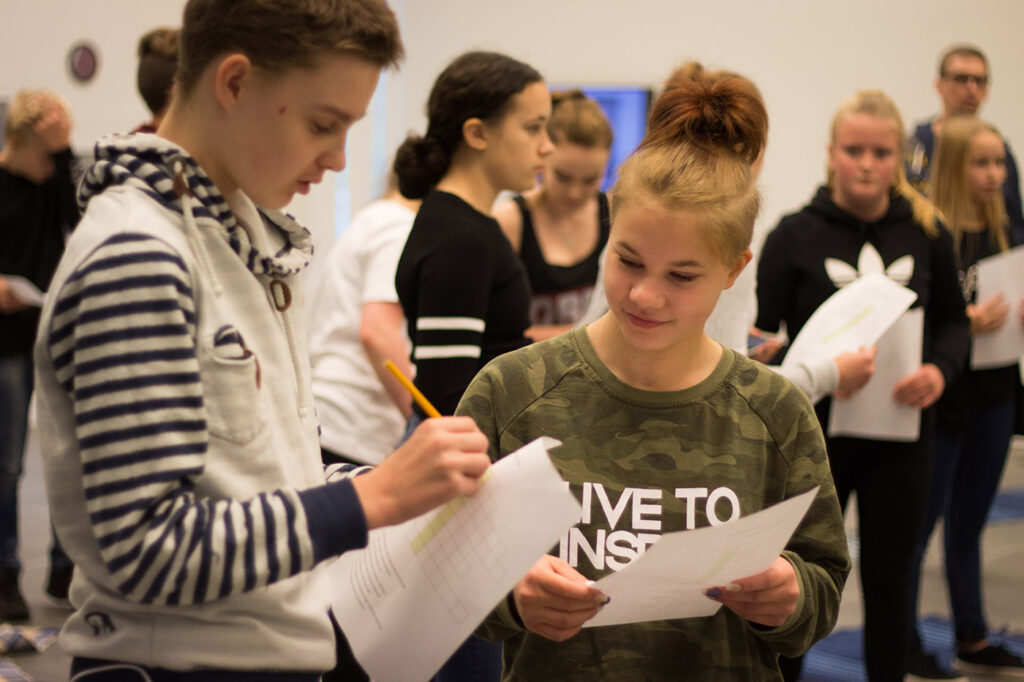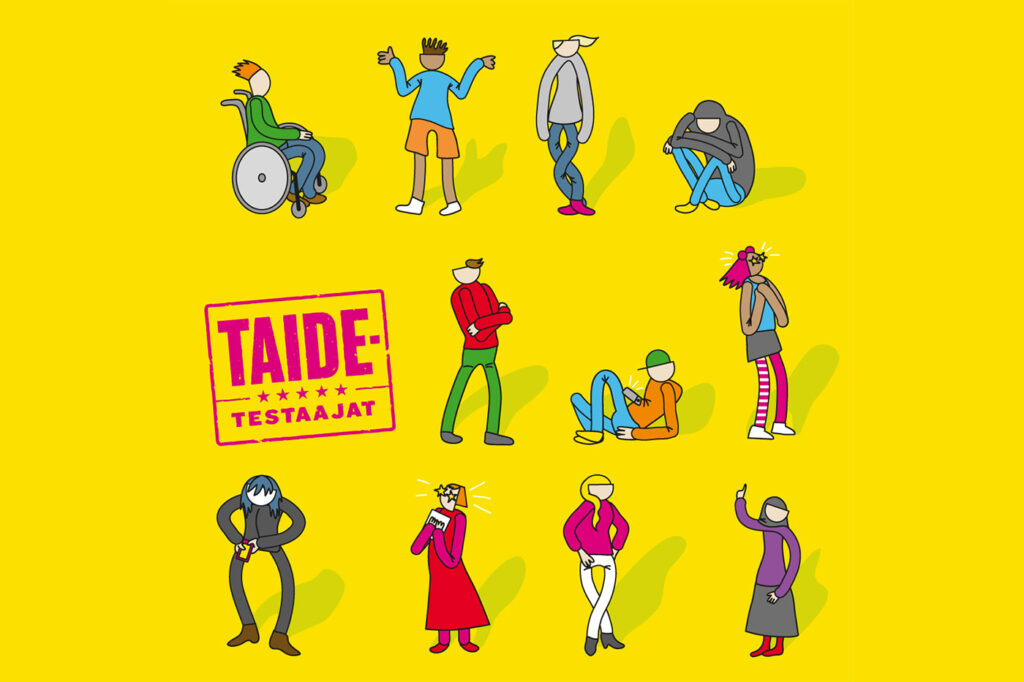
Art Testers
Art Testers is Finland's largest cultural education programme, which each year takes all eighth-graders in Finland - some 65,000 young people and their 5,000 teachers - to one or two high-quality art venues around Finland. The Finnish Cultural Foundation and Svenska kulturfonden provide the students with tickets and transport to, for example, an opera, theatre, concert or art exhibition.
- Art
- teens

About the project
The project, launched by the Finnish Cultural Foundation in 2017, was originally part of the programme for the centenary of Finland’s independence. The Finnish government co-financed the project from autumn 2020 to spring 2024. Art Testers is coordinated and managed by the Association of Children’s Culture in Finland. The continuation of Art Testers is secured until the summer of 2027.
What do the Art Testers aim to achieve?
The aim of the Art Testers activity is to get young people in Finland to experience art, including art that many would not otherwise be exposed to. It also teaches young people to express their own opinions, to listen to others and to consider different points of view.
Visits include pre- and post-visit work to provide young people with more in-depth information, for example about the art form concerned, and to support their experience of art. The aim of this work is to enable the young person not only to experience art, but also to form an informed opinion about their art experience.
After the art visit, the young people’s opinion will be asked using a web-based evaluation application designed for art testers. The results are published on the Art Testers’ website. Through the Art Testers activity, art institutions receive direct feedback from young people and can use it to improve their programming for them.
The Art Testers have an important equity role to play, as young people’s access to out-of-school cultural activities is otherwise strongly linked to their family’s level of education and income. Studies have shown that the processes of making art together are also very effective in developing children’s and young people’s emotional and empathetic skills, which are considered to be among the most important work and citizenship skills for the future.
